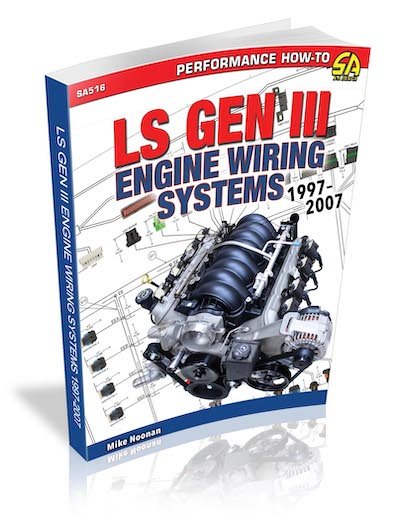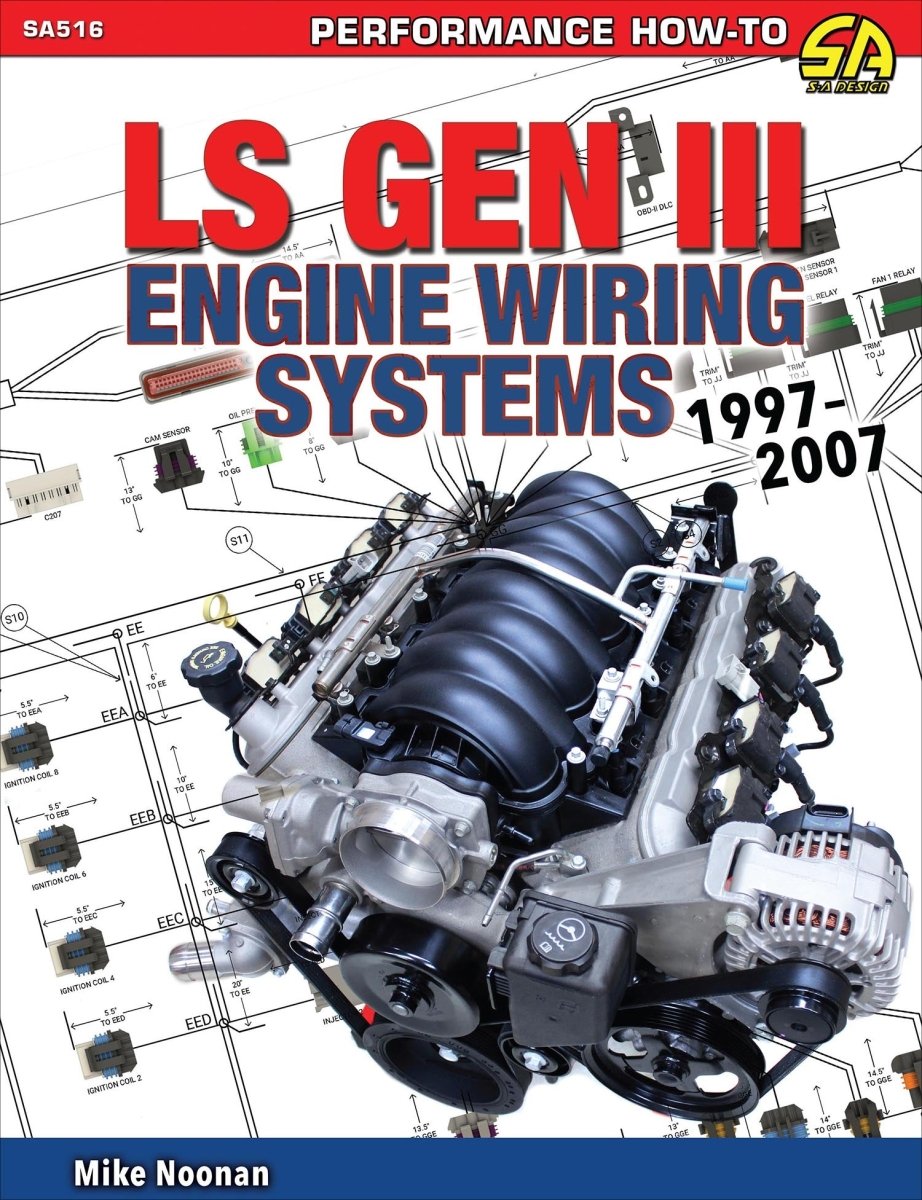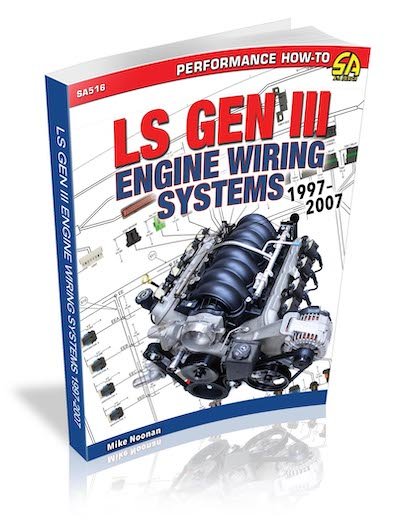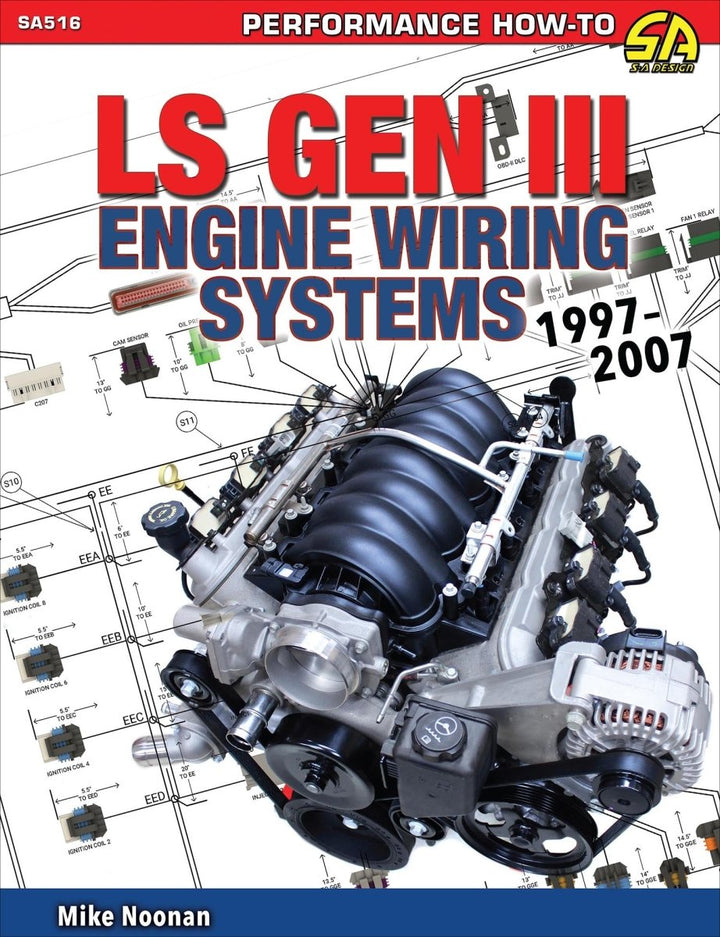Automotive enthusiasts who have followed hot-rodding trends over the last decade know that GM’s LS-series engine is the most popular swap on the market. Similar to the first-generation small-block Chevy engines that were swapped into Model A Fords back in the day, these swaps are arguably just as popular. While kits and the aftermarket help with the logistics and the placement of hardware (such as motor mounts, oil pans, and headers), the area that still remains a mystery to most is how to wire and electronically control your swapped LS project.
In LS Gen III Engine Wiring Systems, expert Mike Noonan helps demystify the entire complicated process. Extensively covered are terms and tools of the trade, advice on quality connections, detailed coverage of all the engine control modules offered, drive-by-wire systems, harness connectors, and cruise-control systems. Also covered in depth are air-conditioning systems, cooling-system fan operation, transmission interfaces and connectivity, and control-module programming (tuning) for standalone operation.
Featuring wiring diagrams and computer-aided design (CAD) and computer-aided manufacturing (CAM) artwork as well as an appendix with real-world projects and examples, this guide covers all the bases. Whether you are performing a simple swap that utilizes only the basics, a more complex project with all the bells and whistles, or simply want a working knowledge of how these systems work, this guide will be a valuable resource for years to come. r
Acknowledgments
Introduction
Chapter 1: Wire Harness Basics
Connectors
Plugs
Terminals
Bus Bar Terminals
Secondary Locks
Dress Covers
Electrical Centers
Fusible Link Wire
Automotive TXL Wire
Measuring Multistranded Wire
Service Life of Automotive TXL Wire
Chapter 2: Materials
Automotive TXL Wire
Fusible Link Wire
Fuse Holders and Fuses
Relay Bases and Relays
Ring Terminals
Butt and Barrel Splice Connectors
Heat Shrink Tubing
Plastic Split Loom
Expandable Braided Sleeving
Split Braided Sleeving
Fiberglass Braided Sleeving
Vinyl Tape
High-Temperature and Medium-Abrasion Cloth Tape
High-Temperature and High-Abrasion Cloth Tape
Heat-Reflective Wire Harness Tape
Chapter 3: Tools of the Trade
Cutting Tools
Stripping Tools
Cut and Strip Machine
Crimping Tools
Disassembly Tools
Soldering Equipment
Ultrasonic Welding Machines
Heat Gun
Custom Tools
Chapter 4: Quality Control
Wire Specifications
Wire Size
Wire Insulation
Wire Colors
Wire Strain
Overloaded Terminals
Missing Fusible Links
Spliced Wire
Taped Splices versus Heat Shrink Tubing
Crimping Tools
Connector Assemblies
Verification and Testing
Engine Compartment–Rated Materials
Chapter 5: The 1997–1998 LS1 PCM
Chapter 6: The 1999–2002 P01 PCM
Chapter 7: The 2003–2007 P59 PCM
Chapter 8: Connector End Views
Chapter 9: Control Module Programming (Tuning)
ECU
PCM
ECM
TCM
FSCM
TAC
BCM
Base Calibration
Dealer-Level Programming Interfaces and Software
Custom Calibration and Starter Calibration
Performance-Level Programming Interfaces and Software
Base Calibration Walk-Through
Starter (or Custom) Calibration Walk-Through
BenchForce Off-Board Programming
Chapter 10: Projects
Project 1: P01 PCM Swap in a 1997 Camaro Z28 383-ci LT4 T56
Project 2: P59 PCM Swap in a 1990 K1500 GM Ram Jet 350 4L60E
Project 3: P01 PCM Swap in a 1985 Camaro Z28 6.0L LS T56





